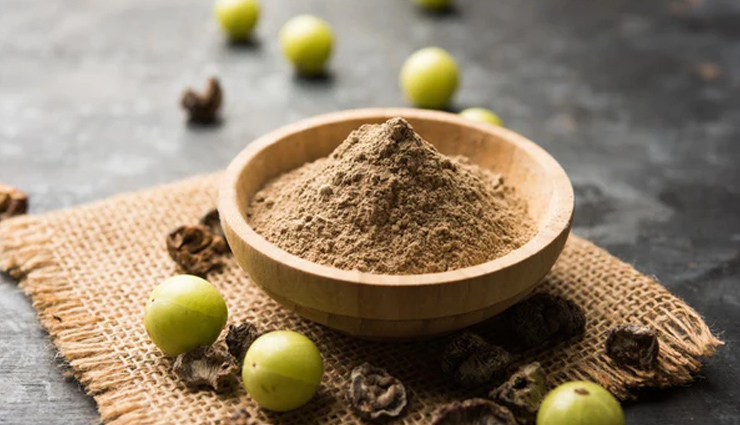- Home›
- Healthy Living›
- 9 Least Known Health Benefits Of Amla
9 Least Known Health Benefits Of Amla
By: Priyanka Maheshwari Fri, 02 Aug 2024 1:18:47

Amla, also known as Indian gooseberry or Emblica officinalis, is a small, green fruit native to India and widely celebrated in traditional medicine. Its rich nutrient profile and potent medicinal properties make it a cornerstone in Ayurvedic practice and a popular choice for promoting overall health.
Amla is renowned for its high Vitamin C content, which is essential for a strong immune system and skin health. Beyond Vitamin C, it is packed with antioxidants, which help protect the body from oxidative stress and free radical damage. This makes amla beneficial for preventing chronic diseases and maintaining overall well-being.
In addition to its antioxidant and immune-boosting properties, amla supports digestive health by aiding in digestion and relieving issues such as acidity and constipation. Its role in heart health is significant, as it helps manage cholesterol levels, blood pressure, and supports cardiovascular function.
Amla also offers benefits for the skin and hair. It promotes a healthy complexion, reduces signs of aging, and strengthens hair, reducing hair fall and promoting growth. For those managing blood sugar levels or seeking to enhance metabolism, amla can be a valuable addition to the diet.
Overall, amla's diverse range of health benefits makes it a versatile and powerful fruit that contributes to a healthy and balanced lifestyle.
# Rich in Vitamin C: Amla is an excellent source of Vitamin C, which boosts the immune system, promotes skin health, and helps fight off infections.
# Antioxidant Properties: It contains powerful antioxidants that help combat oxidative stress and protect cells from damage.

# Supports Digestive Health: Amla aids in digestion, reduces acidity, and can help relieve constipation.

# Boosts Heart Health: It helps lower cholesterol levels, reduces blood pressure, and supports overall cardiovascular health.

# Improves Skin Health: Amla is used in various skincare products due to its ability to improve complexion, reduce signs of aging, and treat acne.

# Enhances Hair Health: It strengthens hair, reduces hair fall, and promotes healthy hair growth.

# Regulates Blood Sugar Levels: Amla can help manage blood sugar levels and is beneficial for individuals with diabetes.
# Anti-Inflammatory Effects: It has anti-inflammatory properties that can help reduce inflammation and pain in the body.
# Boosts Metabolism: Amla can enhance metabolic rate and aid in weight management.
8 ways to include amla in your diet:

# Amla Juice:
Freshly extract amla juice and drink it daily. You can mix it with honey or a pinch of salt to enhance the taste.
# Amla Powder:
Add amla powder to smoothies, juices, or water. It can also be mixed into yogurt or sprinkled on fruit salads.
# Amla Chutney:
Make a tangy chutney with amla, cilantro, green chilies, and spices. Serve it as a condiment with meals.
# Amla Candy:
Dried amla can be consumed as a sweet treat. You can buy or make your own by soaking fresh amla in sugar syrup and then drying it.
# Amla Pickle:
Prepare a spicy amla pickle with mustard oil, spices, and vinegar. It can be stored and used as a flavorful side dish.
# Amla Murabba:
This is a traditional sweet preserve made with amla, sugar, and spices. It's a delicious way to enjoy amla and can be eaten on its own or with bread.
# Amla in Salads:
Add thin slices of fresh amla to salads for a tart and tangy flavor. It pairs well with fresh vegetables and herbs.
# Amla Tea:
Brew a warm cup of amla tea by steeping dried amla pieces or amla powder in hot water. You can add a bit of honey or lemon for extra flavor.





